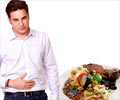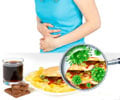Foodborne diseases can ruin the holidays if food is not safely stored, prepared, and served.
- Many individuals are unaware that food safety is the most crucial factor to consider when preparing meals for the holidays
- Pregnant women must also be extra careful since some bacteria are extremely hazardous or fatal to unborn babies
- Simple actions can help keep your food safe from the grocery shop to the kitchen table
Cooking and Storing Food Safely during the Holidays
Store food separately:
At the grocery store and in the refrigerator, keep meat, chicken, turkey, seafood, and eggs separate from all other foods. Keep beef, chicken, turkey, and fish fluids in containers or sealed plastic bags to prevent them from spilling or seeping onto other meals. Keep eggs in their original cartons in the refrigerator’s main compartment.Food should be thoroughly cooked:
Using a food thermometer, ensure that meat, chicken, turkey, shellfish, and eggs are cooked to a safe internal temperature that will kill pathogens. After removing roasts, chops, steaks, and fresh ham from the oven or grill allow them to rest for 3 minutes.Maintain food safety by keeping it out of the ‘danger zone’:
Bacteria can develop quickly in the danger zone of 40°F to 140°F. After cooking, keep hot food hot and cold food cold. Refrigerate or freeze perishable foods such as meat, poultry, turkey, shellfish, eggs, chopped fruit, cooked rice, and leftovers within 2 hours (one hour if exposed to temperatures above 90°F, such as in a hot car). The refrigerator temperature should be set at 40°F or below, and the freezer temperature should be set at 0°F or lower.For meals containing raw eggs, use pasteurized eggs:
Salmonella and other hazardous germs can dwell on the outside as well as the inside of normal-looking eggs. Many Christmas staples, such as eggnog, tiramisu, hollandaise sauce, and Caesar dressing, contain raw eggs. When creating this and other foods containing raw eggs, always use pasteurized eggs.Do not consume raw dough or batter:
Dough and batter made with flour or eggs can include pathogenic bacteria like E. coli and Salmonella. Raw dough or batter that is designed to be baked or cooked should not be tasted or eaten. Dough or batter for cookies, cakes, pies, biscuits, pancakes, tortillas, pizza or crafts is included. At home or in restaurants, do not allow children to taste raw dough or batter or to play with dough. Some companies and stores sell edible cookie dough made with heat-treated flour, pasteurized eggs, or no eggs at all. Check the label to ensure that the dough is intended to be eaten without baking or cooking.Safely defrost your turkey:
Thaw the turkey in the fridge, a sink of cold water (changing the water every 30 minutes), or in the microwave. Thaw frozen turkey or other meals on the counter. To prevent hazardous bacteria from rapidly proliferating, a turkey must defrost at a safe temperature.General Guidelines on When to Wash Your Hands
Wash your hands with soap and water at the following periods when you are most likely to pick up and transfer germs:Holiday Food During Pregnancy
Pregnant women are more vulnerable to food illness, so take extra precautions if you are pregnant or preparing meals for someone who is.Do not consume raw or unpasteurized milk or items produced from it, such as soft cheeses. They may contain hazardous bacteria such as Listeria. Soft cheeses include queso fresco, Brie, Camembert, feta, goat cheese, and blue-veined cheese. Listeria infections have also been linked to cheeses prepared from pasteurized milk, such as queso fresco. These cheeses were most likely tainted during the manufacturing process. Processed cheeses, cream cheese, mozzarella, and hard cheeses are healthier alternatives.
Do not consume raw or unpasteurized juice or cider.
Be cautious when eating seafood. Eat refrigerated smoked fish only if it is in a cooked dish, such as a casserole. Choose shelf-stable smoked fish in pouches or cans that do not require refrigeration instead.
Raw flour, dough, or batter should not be eaten or tasted.
Some festive beverages should be avoided. Do not consume alcoholic holiday punches and eggnogs. Any type of alcohol can harm your baby’s development and cause fetal alcohol spectrum disorders. Eggnog should be avoided unless you know it is alcohol-free and produced with pasteurized eggs and milk.
Source-Medindia
















